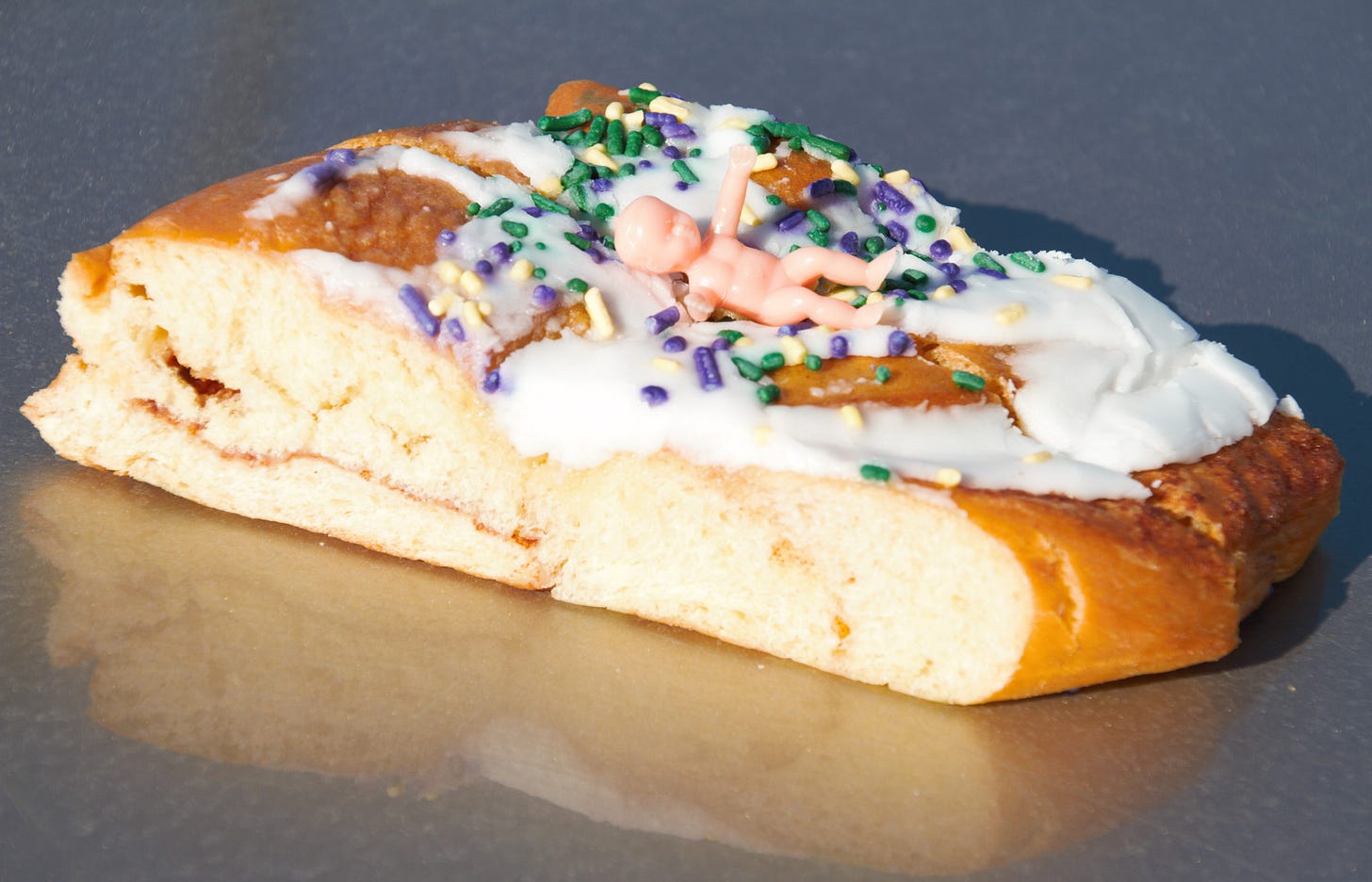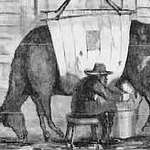Laissez les bons temps rouler! Let the good times roll! Because the day after Fat Tuesday, is the beginning of the Christian season of Lent. Kim and Leigh talk about the religious and practical underpinnings of Lenten fasting, the tradition of King Cakes, shriving, and international pancake races.
Food history helps to explain our human experience. If you’ve ever cooked a meal for someone, you can definitely relate to this content. Since Mardi Gras or commonly known as Fat Tuesday is approaching, this occasion will be the center of our talk today. So, without further ado, let’s start with Fat Tuesday’s common term:
How Fat Tuesday is Celebrated Across the World
Laissez les bons temps rouler!
This translates to “Let the good times roll!”
Fat Tuesday is celebrated almost all across the world and is called by different names such as Pancake Tuesday and Shrove Tuesday. It typically runs from or after the Epiphany and ends on the day before Ash Wednesday.
Lent is an important part of this festival. Once a person goes into Lent, there’s an obligation to observe dietary restriction, abstinence and fasting. The Lenten season lasts for 47 days. In the past Churches, a mandatory rule to fast was held from the Ash Wednesday to the 47th day aka the Eastern Sunday.
However, adults over the age of 50, children, weak and sick people were allowed to skip fasting. This fast restricted diet by eliminating certain foods and ingredients which were mostly rich in fats such as meat or butter. These heavy ingredients were usually low in abundance during this time of year so the mandatory fast boasted a practical motive. By refraining from these food items for 47 days, they were conserved.
King Cake and its Roll in Fat Tuesday
The first food we see at Fat Tuesday is King Cake which is round shaped and decorated. They have a hidden figurine and whoever gets this figurine wins. The custom of this cake runs back to Old World Europe especially Spain and France. In Spain, variations of King Cakes are found.
However, the Barcelona one is a circular pastry filled with marzipan cream and includes candied fruits, cherries and oranges. It contains two prizes which are a King figurine and dried fava beans. The person who gets the king figurine wears the crown and gets to be a king for the day. But with fava beans, the person needs to pay for the cake.
Types of King Cake
Coming to the Mexico side, King Cake is called Rosca de Reyes which is eaten on 6th January along with Tamales. It’s an oval or ring shaped cake with a doll in the center. In France, there are several King Cakes but we’ll be talking about Galette des rois which translates to ‘of the king’. Galette des rois resembles a pie due to the flaky crust with the famous frangipane filling of (pastry cream and almond cream). It boasts a personal figurine called “la fève” and whoever gets it can become a king/queen while wearing a paper crown.
There’s another King Cake in Portugal which has different versions but is more elongated. It’s more like a fruitcake with dried fruits and candies as decorations. This King Cake also has fava beans inside and whoever finds them will have to buy the next year’s cake.
Now coming to the familiar place of Louisiana, King Cake here is decorated with different colors. Purple signifies justice, green is for faith and gold stands for power. These are the official colors of Mardi Gras.
The tradition of eating shriving cakes dates back to 461 AD with the spread of christianity. These cakes were flat, not fluffy. Symbolism can be found in the ingredients of this item. Eggs symbolize rebirth, milk symbolizes innocence and wheat symbolizes the staff of life. Will you celebrate with any of these symbolic foods this year? Tell us which ones.
Mardi Gras Transcript
🎧 Click here for the full, interactive transcript of this episode 🎧
Sources We Found Helpful for this Episode
Books We Think You’ll Enjoy Reading
Recipes You Really Need to Try
King Cake - Pastry Chef Online
King Cake - Travel Louisiana
Shrove Tuesday Pancakes - Christina’s Cucina
Episodes We Think You’ll Like
We would love to connect with you
AsWeEat.com, on Instagram @asweeat, join our new As We Eat community on Facebook, or subscribe to the As We Eat Journal.
Do you have a great idea 💡 for a show topic, a recipe 🥘 that you want to share, or just say “hi”👋🏻? Send us an email at connect@asweeat.com
Review As We Eat on Podchaser or Apple Podcast. We would like to know what you think.
And please subscribe to As We Eat, Going Places. Eric and Leigh will be traveling in their converted van sharing stories of food culture from the road.
Did you know that the podcast is only one platform for our storytelling? We also have the As We Eat Journal and for just a few dollars, you can get access to exclusive content as well as more in-depth articles and help keep our oven lights on!
Thank you for listening to the As We Eat Podcast. This post is public so share it with a friend - or three :)
























Share this post